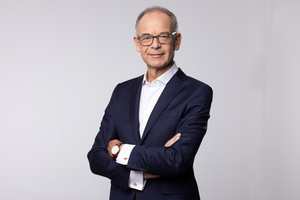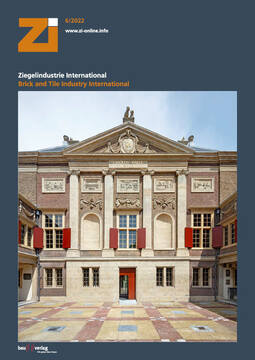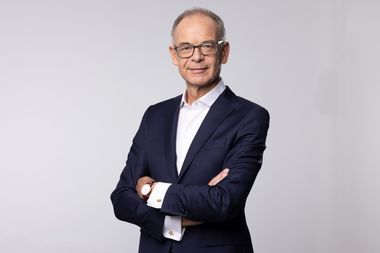Wienerberger earnings above prior year also in the third quarter of 2022
According to the third quarter announcement, Wienerberger recorded consolidated revenues of 3,848.0 million euros in the first nine months of the 2022 financial year (previous year: 2,896.5 million euros). Revenues include consolidation contributions of 391.7 million euros from companies acquired in the second half of 2021. Despite a challenging and volatile market environment, EBITDA in the same period was significantly above the previous year‘s level (510.1 million euros) at 835.4 million euros. Operating earnings before interest and taxes (EBIT operating) amounted to 629.1 million euros, an increase of almost 95 percent compared to the previous year (2022: 323.3 million euros).
Heimo Scheuch, Chief Executive Officer of Wienerberger AG, commented on these figures: „Thanks to our forward-looking purchasing and pricing policy, we were able to successfully cover the significant increase in cost inflation and at the same time ensure the availability of energy throughout the year. In declining markets, we once again demonstrated the resilience of our sustainable business model, successfully continued our organic growth path and achieved a record result in the first nine months of 2022.“
The group also increased earnings in the third quarter of 2022. External sales of 1,275.9 euros million were 24 percent higher than the previous year‘s figure of 1,027.5 million euros. EBITDA increased by 41 per cent to 286.7 million euros (previous year: 203.1 million euros).
CO2 savings expected to reach 12 percent in 2022
According to the press release, Wienerberger expects to save 12 percent CO2 in 2022. This is above the plan of the sustainability strategy, which envisages a saving of 15 percent by 2023. The entire pipe and paving production, which accounts for more than a third of the Wienerberger Group‘s turnover, has already been converted to green electricity. In ceramic production, the company is working on the conversion to sustainable energy sources such as electricity, hydrogen or biogas, depending on local availability. The increased use of electricity - for example for kilns or in the drying process - is also being evaluated. The increased electricity demand is to be covered autonomously by photovoltaics or wind energy directly at the production sites.
Outlook 2022
Wienerberger expects the geopolitical and economic instability to continue. The Group expects energy prices to remain high. However, the Group expects energy prices to remain high and personnel costs to rise. The inflation rate will therefore remain high and the pressure for higher interest rates will continue.
Scheuch on the outlook for 2022: „In this challenging environment, we expect the markets for new construction to decline by 10-12 percent and in the infrastructure segment by approx. 5 to 7 percent for the full 2022 financial year, while we anticipate a stable market development for the renovation segment.“
Based on the very positive results of the first three quarters and a strong start to the fourth quarter, Wienerberger is raising its operating EBITDA guidance for 2022 to between 950 million and 970 million euros.
Outlook 2023
Commenting on the outlook for the coming year, Scheuch says: „In the current business year, the energy supply of the Wienerberger Group was always secured. For 2023, we also assume that our long-term energy supply contracts will be honoured at the agreed conditions. In addition, we are actively driving forward the energy turnaround and the switch to renewable energy sources. In ceramic production, we are working on the conversion to sustainable energy sources such as electricity, hydrogen or biogas, depending on local availability. We will cover the increased electricity demand with photovoltaic and wind energy directly at our production sites.“
Wienerberger expects the ongoing geopolitical instability and rising interest rates to have a dampening effect on the economy. For the coming business year, the company expects declines of 15 percent in new residential construction in the end markets. In infrastructure, Wienerberger expects a decline of approximately five percent, and in renovation a stable development.




